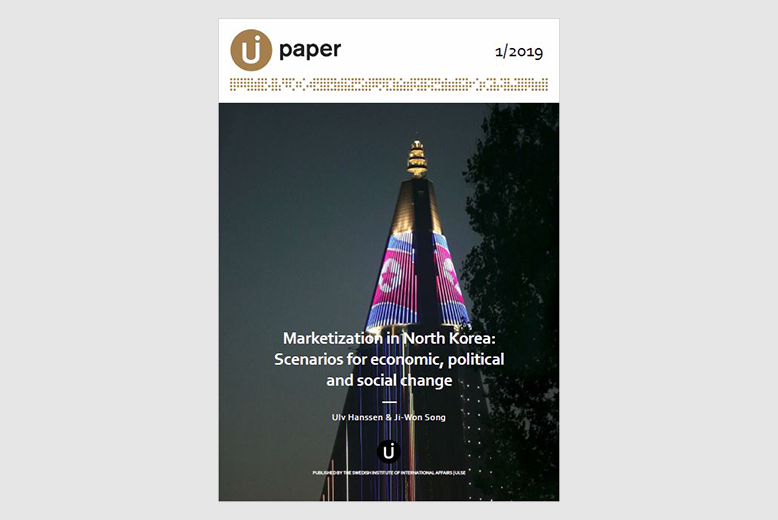
Cause for optimism about a capitalist turn in North Korea
In this new UI Paper, Ulv Hanssen and Ji-Won Song, explores the spread of markets in North Korea and analyzes the potential for marketization to bring about change in the authoritarian state.
While Kim Jong-il’s legacy was tainted by famine, Kim Jong-un’s has coincided with a period of unprecedented wealth and social freedom. North Korea’s current leader appears to understand that rather than obstructing marketization, he has more to gain from taking credit from economic development.
– North Korea's expanding marketization may be far more consequential in the long run than its nuclear development, says Ulv Hanssen, who together with Ji-Won Song explores this phenomenon in the UI Paper Marketization in North Korea: Scenarios for economic, political and social change.
While core industries are still strongly controlled by the government, the production of food and consumer goods have seen autonomous farm collectives and de facto privatized state-owned enterprises take on increased capacity. Products end up in large-scale consumer markets, where private individuals trade in all sorts of domestic and foreign goods.
– An increasingly large segment of North Korean society becomes dependent on markets for survival and pressure on the government to facilitate market activity is bound to grow, says Song.
Moderate change ahead?
Against the backdrop of rapid marketization, Hanssen and Song argue that a future scenario of moderate change is most likely.
– If Kim Jong-un accommodates marketization through a program of moderate reform he is likely to succeed in consolidating his power and enhancing his legitimacy. Either way, change is happening in North Korea – it is no longer a matter of if but rather how much and how fast, – says Hanssen.
The possibility that economic reforms might consolidate Kim Jong-Un’s power ought to be acknowledged. North Korea may be able to achieve significant economic growth without abandoning its political system.
– North Koreans do not want change because they have a burning desire for democracy. Rather, they want change because they want to live more like the South Koreans: eat three meals a day, live in decent houses with round-the-clock electricity and running water, and have better opportunities for their children, says Song.
In this sense, there is cause for optimism about marketization in North Korea, however any illusions about imminent democratization should be kept at bay.
Ulv Hanssen, Lecturer at Soka University, Japan and Research Fellow at UI
Ji-Won Song, PhD Candidate, Stockholm School of Economics
Author Charlotte Svensson